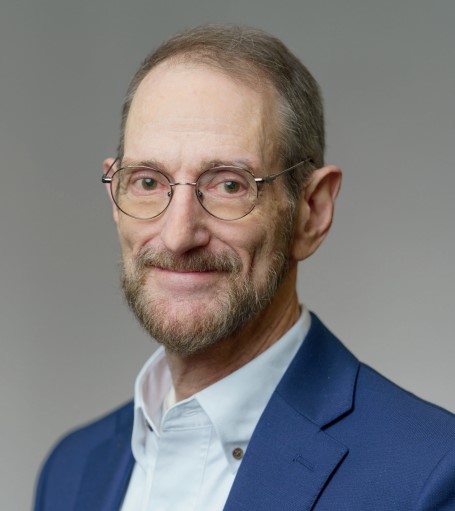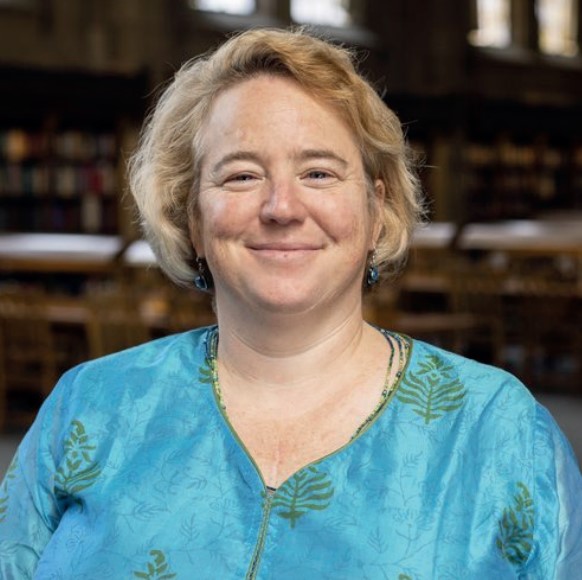Deans ASPPH
20 CONGISP

Daniele Fallin
Dean
Emory University Rollins School of Public Health.
Dr. M. Daniele Fallin is the James W. Curran Dean of Public Health at the Rollins School of Public Health. With more than 250 scientific publications that have been cited more than 22,000 times, Fallin’s globally-recognized research focuses on applying genetic epidemiology methods to studies of neuropsychiatric disorders including autism, Alzheimer’s disease, schizophrenia, and bipolar disorder and to developing applications and methods for genetic and epigenetic epidemiology, as applied to mental health and development.
Fallin has led multiple CDC- and NIH-funded projects regarding how environments, behaviors, genetic variation, and epigenetic variation contribute to risk for psychiatric disease, particularly autism. She led the Maryland site of the Study to Explore Early Development (SEED) and of the Early Autism Risk Longitudinal Investigation (EARLI) for over a decade. She was also the inaugural principal investigator of the B’more Healthy Brain and Child Development (HBCD) study, one of 25 sites of the NIH’s newly initiated HBCD study, where she currently serves as an associate director of the administrative core to guide epidemiologic design. Given her commitment to public mental health broadly, Dean Fallin also co-led the Maryland POE Center for Workplace Mental Health and continues to be engaged in workplace and school-based mental health as key tools for promoting population mental health.
Prior to joining Rollins, Fallin worked at the Johns Hopkins Bloomberg School of Public Health for 22 years, where she served as chair of the Department of Mental Health, Sylvia and Harold Halpert Professor, Bloomberg Centennial Professor, and held joint appointments in the Bloomberg School’s Departments of Epidemiology and Biostatistics and the Johns Hopkins School of Medicine’s Departments of Medicine and Psychiatry. While at the Bloomberg School, Fallin directed the Wendy Klag Center for Autism and Developmental Disabilities and previously served as director of the genetic epidemiology area within epidemiology prior to becoming chair of the Department of Mental Health in 2013.
Fallin completed a Bachelor of Science from the University of Florida–Gainesville and earned a PhD in genetic epidemiology from Case Western Reserve University
Edward J. Trapido
Interim Dean, Associate Dean for Research Louisiana State University Health Sciences Center School of Public Health.
Dr. Edward Trapido is Professor and Associate Dean for Research at the Louisiana State University School of Public Health. He is also Deputy Director for Population Science in the Stanley S. Scott Cancer Center, and the Coordinator for LSU Health Sciences Center’s research on the Gulf Oil Spill. Before joining LSU, Dr. Trapido was Professor of the Department of Epidemiology and Public Health, and Vice Chair for Education, at the University of Miami Miller School of Medicine. From 2003-2008, Dr. Trapido was Associate Director of the Epidemiology and Genetics Research Program, at the NCI. A cancer epidemiologist by training, Dr. Trapido received his ScD and ScM degrees from the Harvard University School of Public Health, and an MSPH from the University of North Carolina in Chapel Hill., Cancer Epidemiology, Prevention, Control, HIV, Tobacco, Global Health, Environmental Epidemiology, Health Disparities, Disasters, Global Cancer Planning, Tobacco, HIV, Health Disparities, Public Health, Politics, Policy, Global Public Health, Cancer Epidemiology, Health Disparities.


Gerard E. Carrino
Dean
Texas Tech University Health Sciences Center, Julia Jones Matthews School of Population and Public Health.
Public health educator and innovator with 20+ years of experience and expertise in fund-raising, program development and evaluation, strategic and operational planning, cause marketing, and fiscal oversight. Currently educating the next generation of population and public health professionals, leading the Julia Jones Matthews School of Population and Public Health as inaugural Dean. As a senior executive at world-class nonprofit organizations, succeeded by inspiring and sustaining lean teams of high functioning staff and partners. Highly strategic and analytical, yet humanistic and empathetic, with uncommon ability to present complex data simply and to motivate others to action.
Hilary A. Godwin
Dean
University of Washington School of Public Health.
Dr. Hilary Godwin is dean of the University of Washington School of Public Health and professor of environmental and occupational health sciences at the University of Washington.
Dr. Godwin received a BS in Chemistry from the University of Chicago in 1989 and a PhD in Physical Chemistry from Stanford University in 1994. She conducted postdoctoral research from 1994-1996 at the Johns Hopkins University School of Medicine in the department of biophysics and biophysical chemistry. She has held faculty and leadership positions at both the UCLA Fielding School of Public Health, where she served as chair of the department of environmental health sciences and associate dean for academic programs, and at Northwestern University, where she served as chair of the chemistry department.
Over her career, Dr. Godwin’s research focused primarily on elucidating the molecular toxicology of engineered nanomaterials and the heavy metal lead. She has also worked on the impacts of conservation programs and policies on the health of indigenous populations and on community-based approaches to addressing environmental health problems. Her primary passions are for projects and programs that involve interdisciplinary collaborations that provide a scientific basis for prevention-based approaches to improving health and for training and mentoring the next generation of public health leaders.


Iman Hakim
Dean
University of Arizona Mel and Enid Zuckerman College of Public Health.
Dr. Iman Hakim is a professor of public health and the dean of the University of Arizona (UA) Mel and Enid Zuckerman College of Public Health (MEZCOPH). Dr. Hakim is the Mel & Enid Zuckerman Endowed Chair in Public Health and the founding director of the Global Health Institute at UA. She also has served as the Director of the Division of Health Promotion Sciences at MEZCOPH and as the director of family and child health concentration. She is a member of the UA Cancer Center and Sarver Heart Center at the UA College of Medicine. She holds joint appointments in the Department of Nutrition at the UA College of Agriculture and Life Sciences and in the Department of Family and Community Medicine at the UA College of Medicine.
She is internationally known for her translational research and work on the role of bioactive food compounds such as green tea and d-limonene in modulation of oxidative damage and prevention of chronic diseases such as cancer, cardiovascular diseases, and diabetes. Her research focuses on health promotion, dietary interventions, and the role of gene-environment and gene-nutrition interactions in chronic disease prevention.
She has been the principal investigator of several large-scale, behavior change interventions and clinical trials focused on nutrition and cancer prevention, tea consumption and coronary heart disease, chemoprevention of lung carcinogenesis using green tea; dietary interventions to study the effects of tea consumption on smoking-related oxidative stress and role of d-limonene and citrus-cancer association in Mediterranean diet.
Dr. Hakim has spoken at numerous national and international conferences. Dr. Hakim is a member of 1) the global committee of the Association of Academic Health Centers (AAHC) representing the Arizona Health Sciences Center; 2) the Arizona Department of Health Services (ADHS) Adult Tobacco Cessation Advisory Group; 3). the external advisory board of the “UNAM-Tucson Centro De Estudios Mexicanosl and 4) UA Health Sciences’ advisory committee for Global initiative. In addition, she served as the chair of the State of Arizona Biomedical Research and as the Co-Chair of the UA Population and Health Outcomes Advisory Council.
Dr. Hakim earned her medical degree from Cairo University in Egypt where she completed her Pediatric residency. She received her PhD in in child health and nutrition from Ain-Shams University in Cairo, Egypt, and her Master
of Public Health degree in Preventive Medicine from the University of Arizona, College of Medicine.
James W. Curran
Dean Emeritus
Professor of Epidemiology and Global Health Emory University Rollins School of Public Health.
Jim Curran joined the Rollins School of Public Health as Dean and Professor of Epidemiology in 1995 following twenty-five years of leadership at the Centers for Disease Control and Prevention. He served as co-director of the Emory Center for AIDS Research and holds faculty appointments in the Emory School of Medicine and the Nell Hodgson Woodruff School of Nursing.
In 1981, Jim Curran was tapped to lead a CDC task force charged with determining what was behind the first cases of what we now know as AIDS. A pioneer in HIV/AIDS prevention, Dr. Curran led the nation’s efforts in the battle against HIV/AIDS for 15 years before joining Emory as Dean. While at the CDC, he attained the rank of the assistant surgeon general.
After graduating from the University of Notre Dame, Jim received his MD from the University of Michigan and a master of public health from Harvard University. Dr. Curran is a fellow of the American Epidemiologic Society, the American College of Preventive Medicine, and the Infectious Diseases Society of America. Author or co-author of more than 270 scholarly publications, he was elected to the Institute of Medicine of the National Academy of Sciences in 1993. He was given the Surgeon General’s Medal of Excellence in 1996 and received the John Snow Award from the American Public Health Association in 2003.
In 2015 Curran was elected to the American Academy of Arts and Sciences and is immediate past chair of the board on Population Health and Public Health Practice of the Institute of Medicine and serves on the Executive Committee of the Association of Schools and Programs of Public Health. In 2009, the Rollins School of Public Health Dean’s position was named the James W. Curran Dean of Public Health in his honor.


Kerry N. Mitchell
Associate Professor & Chair
St. George's University Department of Public Health and Preventive Medicine.
Dr. Mitchell completed his undergraduate studies in Environmental Sciences and post-graduate studies in Biological Sciences at the Autonomous University of Aguascalientes, Mexico. During his post-graduate studies, he worked with the Toxicology and Environmental Bioengineering research group on the risk assessment and remediation of areas polluted with toxic metals. Dr. Mitchell currently collaborates on an international project focused on the remediation of polluted environments using organic amendments. He leads a research exploring the spatiotemporal trends of ambient particulate matter pollution and their effects on human health.
Megan Quinn
Associate Dean
Community and Global Engagement East Tennessee State University College of Public Health.
Dr. Megan Quinn is Professor of Epidemiology and the Associate Dean of Community and Global Engagement in the College of Public Health at East Tennessee State University (ETSU). She earned her B.A. in psychology from Wesleyan College, a M.Sc. in public health research from University of Edinburgh, and a Dr.PH in epidemiology from ETSU. Megan is a member of the Center for Rural Health Research and the ETSU/ Ballad Health Strong BRAIN (Building Resilience through ACEs Informed Networking). Broadly, her research is focused on using applied epidemiologic methods to address issues of public health importance.



